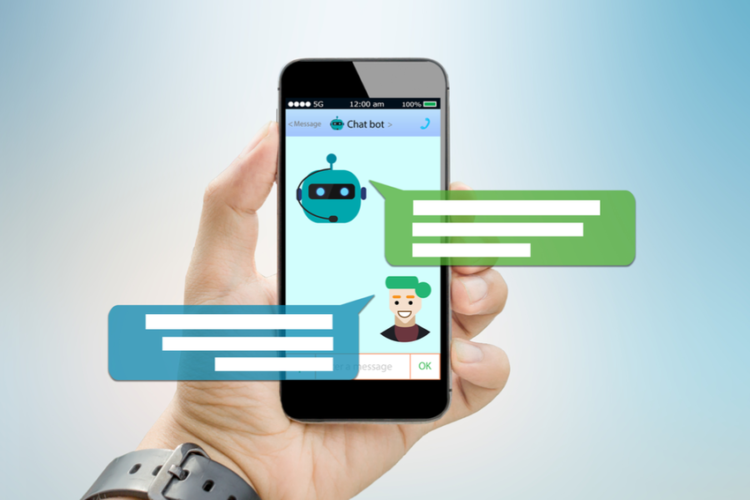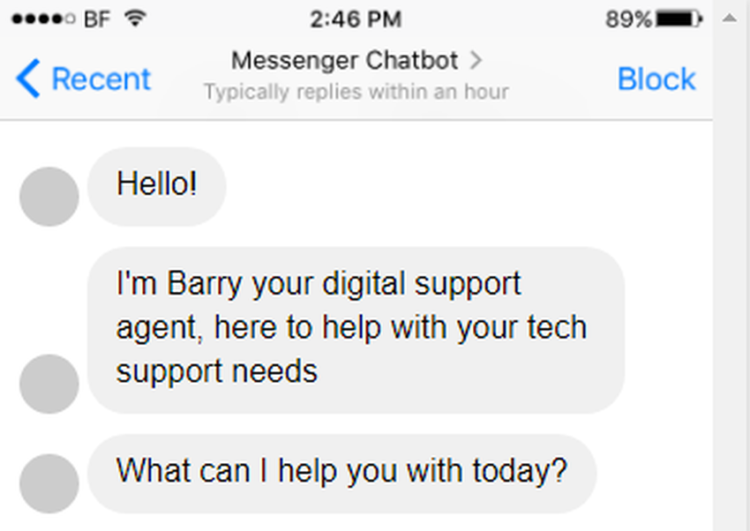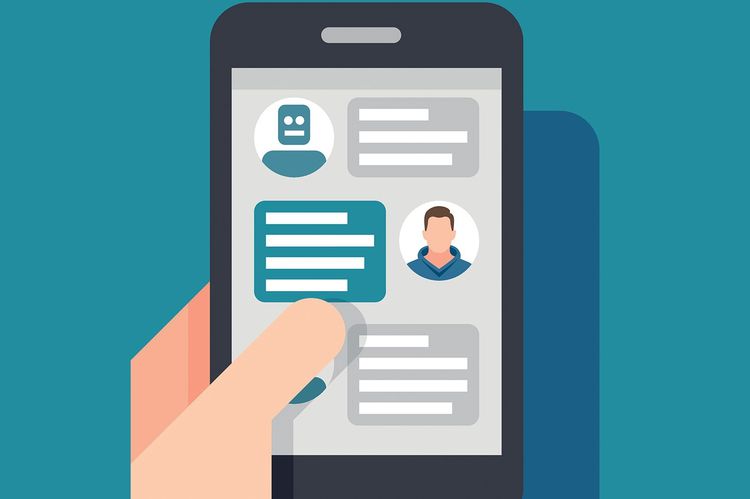Chatbots are significantly impacting customer service, which is arguably the most important part of running a business. They have a positive impact on customer experience because, unlike humans, chatbots can offer faster assistance 24/7, thus, enabling customers to overcome any issues that arise swiftly and in real-time.
Apart from that, they have helped companies realize significant cost-savings by keeping them from incurring the costs of acquiring and maintaining customer service departments.
These and other benefits of having chatbots have made this technology a major talking point among top online marketers. For this reason, it easy for anyone to get carried away, leading to the implementation of chatbots in businesses that do not really need them. After all, chatbots are not guaranteed to offer value to all businesses.

source:uxplanet.org
In light of that, this article will tell you whether chatbot tech is essential for your small business or not. The idea behind this is that, for a small business owner, it always makes sense to tell fads from worthwhile business strategies to ensure smooth and profitable business operations.
Page Contents
How to Know If a Chatbot Is Right for Your Business
How do you know if a chatbot is appropriate for your venture? Generally, chatbots are an excellent idea for businesses within service-heavy sectors, e.g., finance, travel, retail, and telecommunications. If you are not sure whether you need a chatbot for your business, try to get answers to the following questions.

source:uxplanet.org
- Determine whether you have an existing messaging approach or if you get similar questions perpetually from visitors and customers.
- Gauge whether your target demographic uses Facebook Messenger or if they are technologically apt to embrace chatbots.
- Learn if the resources at your disposal are sufficient to develop and track the performance of chatbots.
If you have responded with a “yes” to all of the above queries, then there’s a high chance that your venture will gain from deploying a chatbot.
Get a Chatbot If You Want to Achieve the Following
Chatbots offer incredible value when it comes to specific business processes. Let’s take a look at key advantages.

source:information-age.com
Effective Lead Generation
It is no secret that qualifying leads is a repetitive procedure. However, if you have an excellent messaging strategy, a chatbot can be handy when it comes to automating the process. This way, response time can be reduced, and you will be able to get more leads.
Better Sales
Chatbots are an excellent way of guiding both prospects and customers through the sales cycle that ends with conversions. They help in identifying the goods and services that work for prospects best.
Better Customer Support
If you get similar queries from time to time, then instead of having a FAQs section, you could step things up a bit by making the process more interactive. A chatbot will add personality to the FAQs webpage and respond way faster. A streamlined customer support process remains one of the defining benefits of chatbots. To understand this and find use cases that will fit your business you can click here. So, if this is what you are after, why not give this technology a shot?
Access to Customer Data and Insights
Chatbots collect a lot of information through their communication with customers. In this way, you get valuable insights that you can use to improve your products or services as well as optimize your site.
When to Steer Clear of Chatbot Technology

source:information-age.com
While chatbots are sure to yield tons of advantages, there are times that real benefits will not be realized. So let’s discuss instances when you should think twice about acquiring a chatbot for small business:
Low Volume of Service Requests
Deploying a chatbot is more likely to be worth the investment if your business deals with a lot of customer messages every day. There are two reasons for that. First, the artificial intelligence program that runs a chatbot requires ample data to learn about your customers effectively. Without access to such information, the virtual assistant (VA) might never become sophisticated enough to predict or assess customer’s needs enough to deliver the right service. In the end, it can turn out to be a piece of expensive program that doesn’t add value to your business.
Secondly, it takes time to develop a chatbot that is unique to the business and integrate it with the current labor force. Therefore, it only makes sense if you are already spending a significant part of your funds on customer service efforts.

source:information-age.com
When You Deal with Sensitive Data
A significant challenge facing chatbots in customer service is data privacy and protection. This issue applies to the e-commerce industry, where sensitive personal and financial information is shared between customers and businesses regularly. The fear among business owners is that chatbots powered by third party companies like Amazon, Apple, and Facebook don’t guarantee privacy of customer conversations as they run on a centralized network. So, a chatbot can be wonderful for boosting communication services that don’t cover private customer accounts. Otherwise, you would need a VA that operates in an environment that you control.
Users Language
Chatbots can have trouble understanding what customers are asking if they use grammatically incorrect English (or the language your bot is programmed to communicate in). As a result, they won’t be able to provide an accurate answer. If most of your customers tend to communicate in slang or incorrect English, a chatbot might have a hard time adjusting.
If Your Audience Is Not Tech Savvy
While there is so much to love about chatbots, not everybody embraces them. Some existing and even potential clients will be reluctant to use a chatbot. So, it’s important to know who your customers are. If they are not too enthusiastic about modern tech, expect slower adoption.

source:botsupply.ai
Verdict
So, is it necessary to develop a chatbot for your small enterprise or not? The decision is not an easy one. But remember, as technology keeps on improving, chatbots will likely replace traditional forms of customer communication in the future. Compare what your business and customers stand to gain and the challenges you are likely to face during and after integration. If you decide to get a bot, invest in a high-quality one. It is better not to have a chatbot than have a terrible one.





